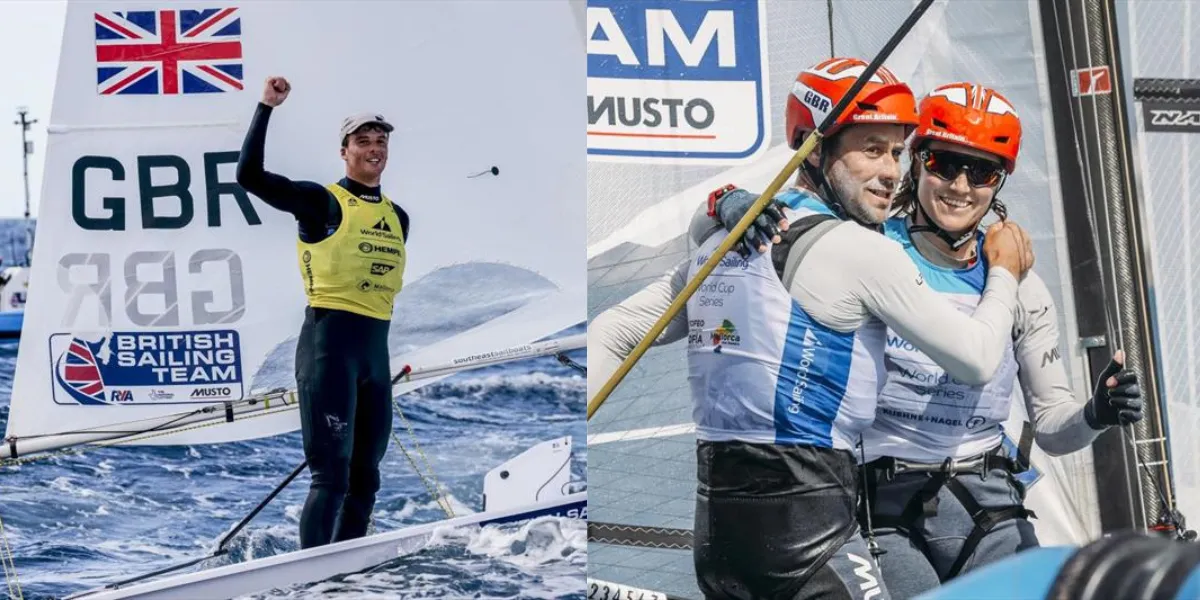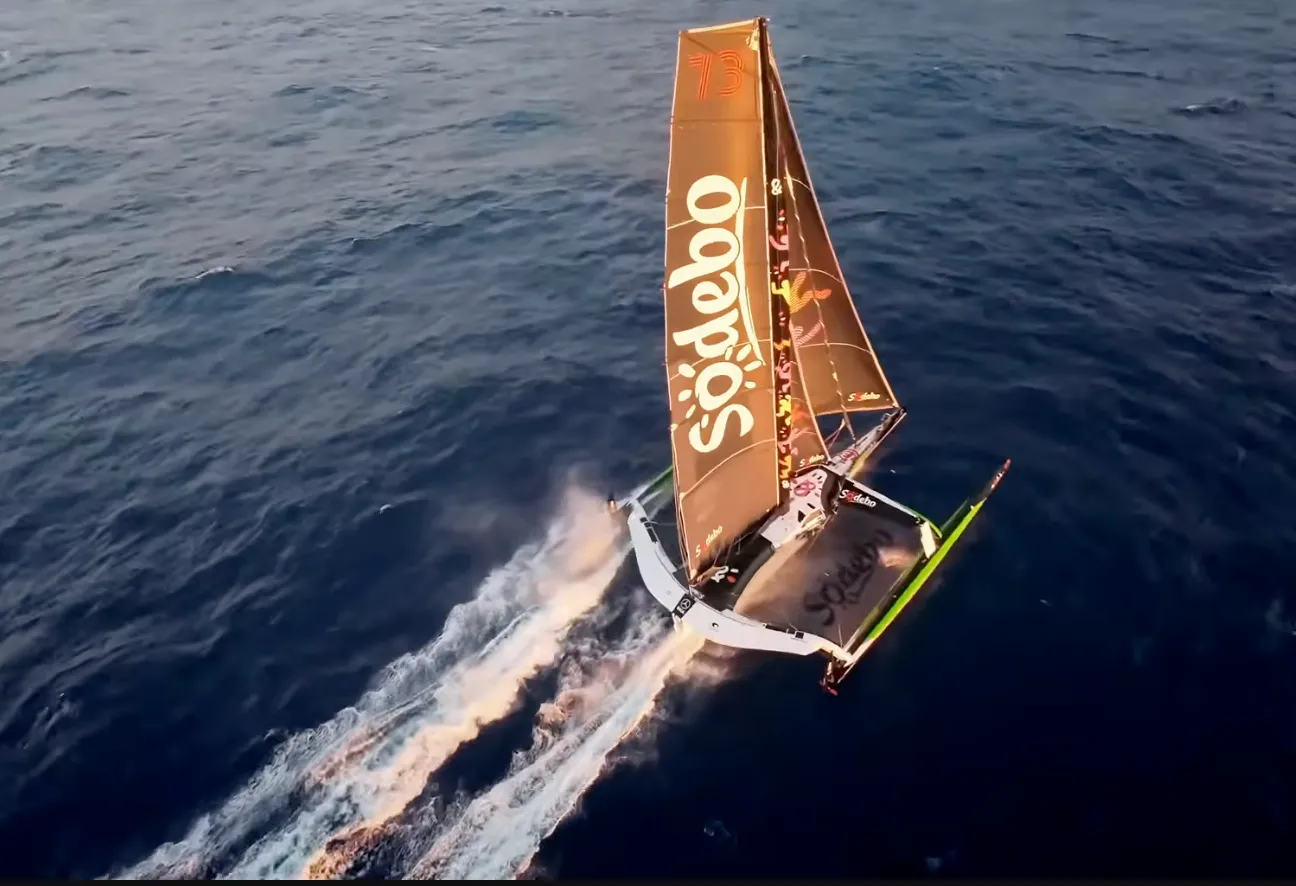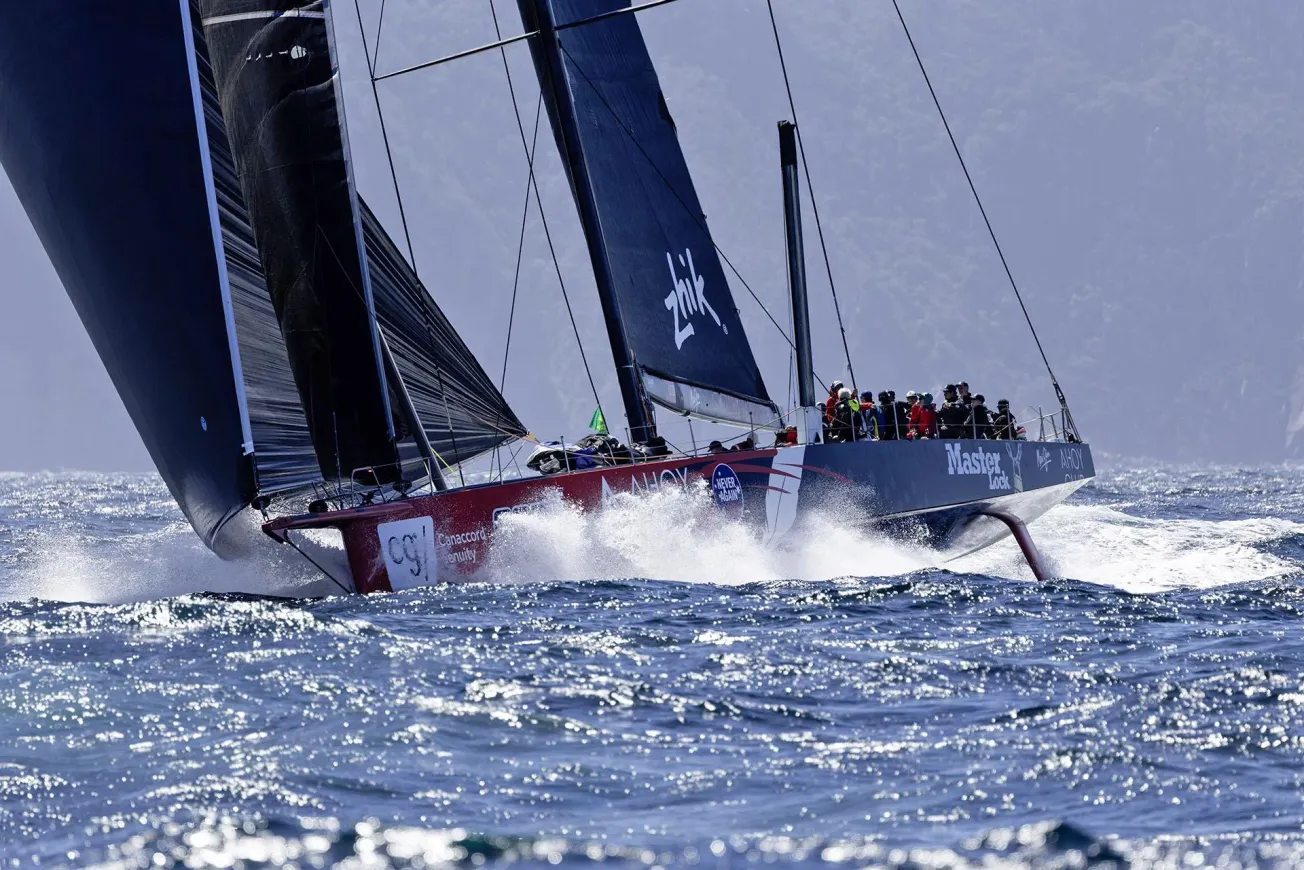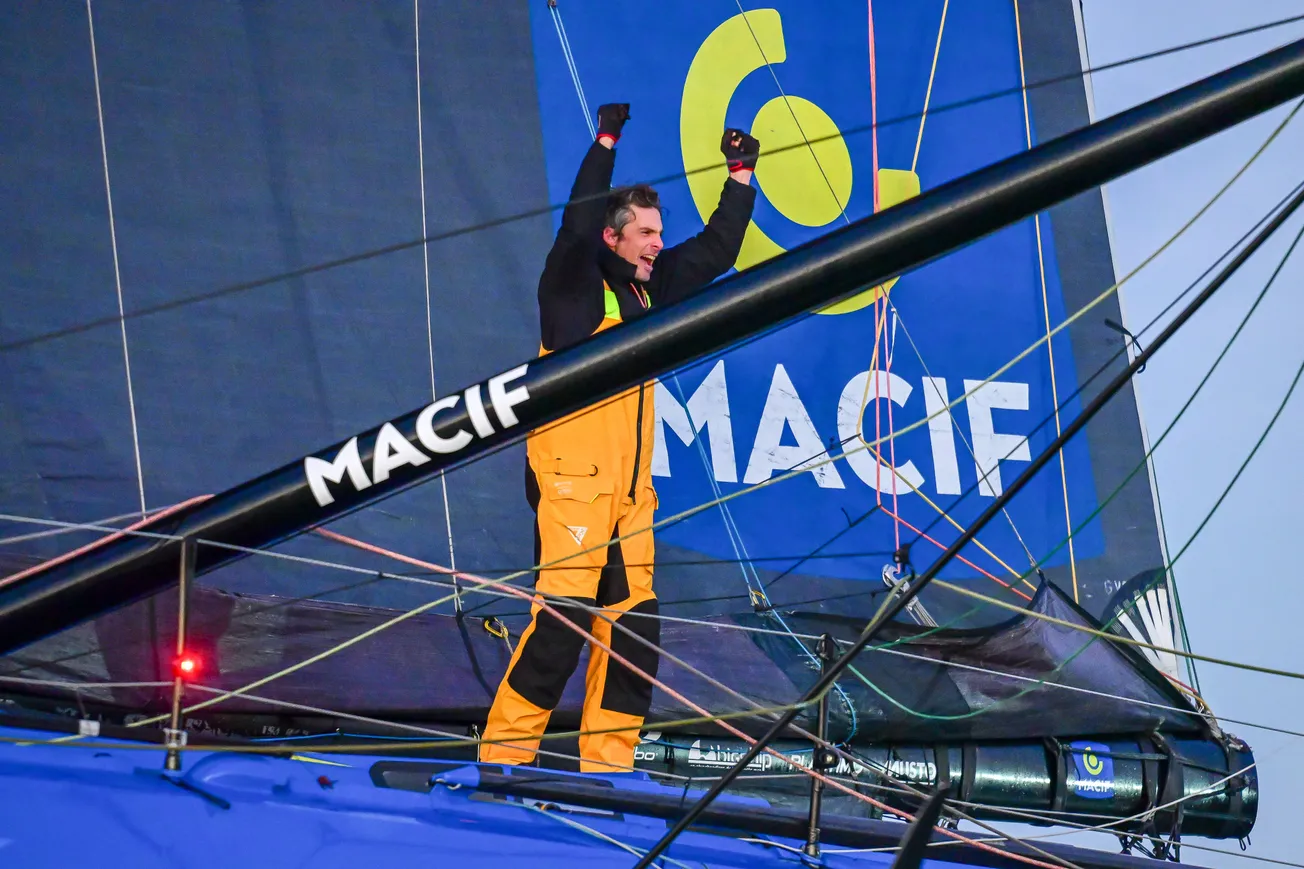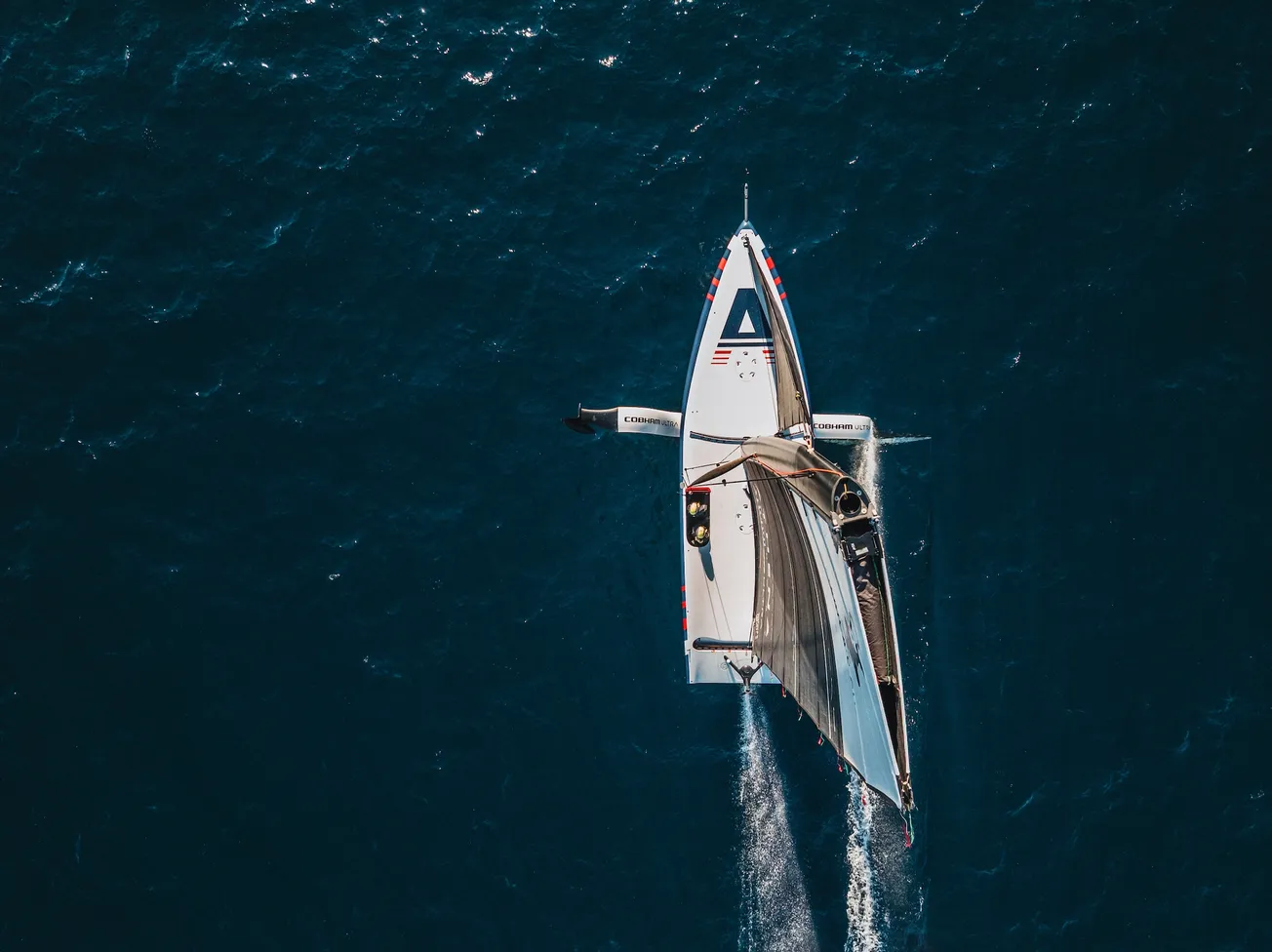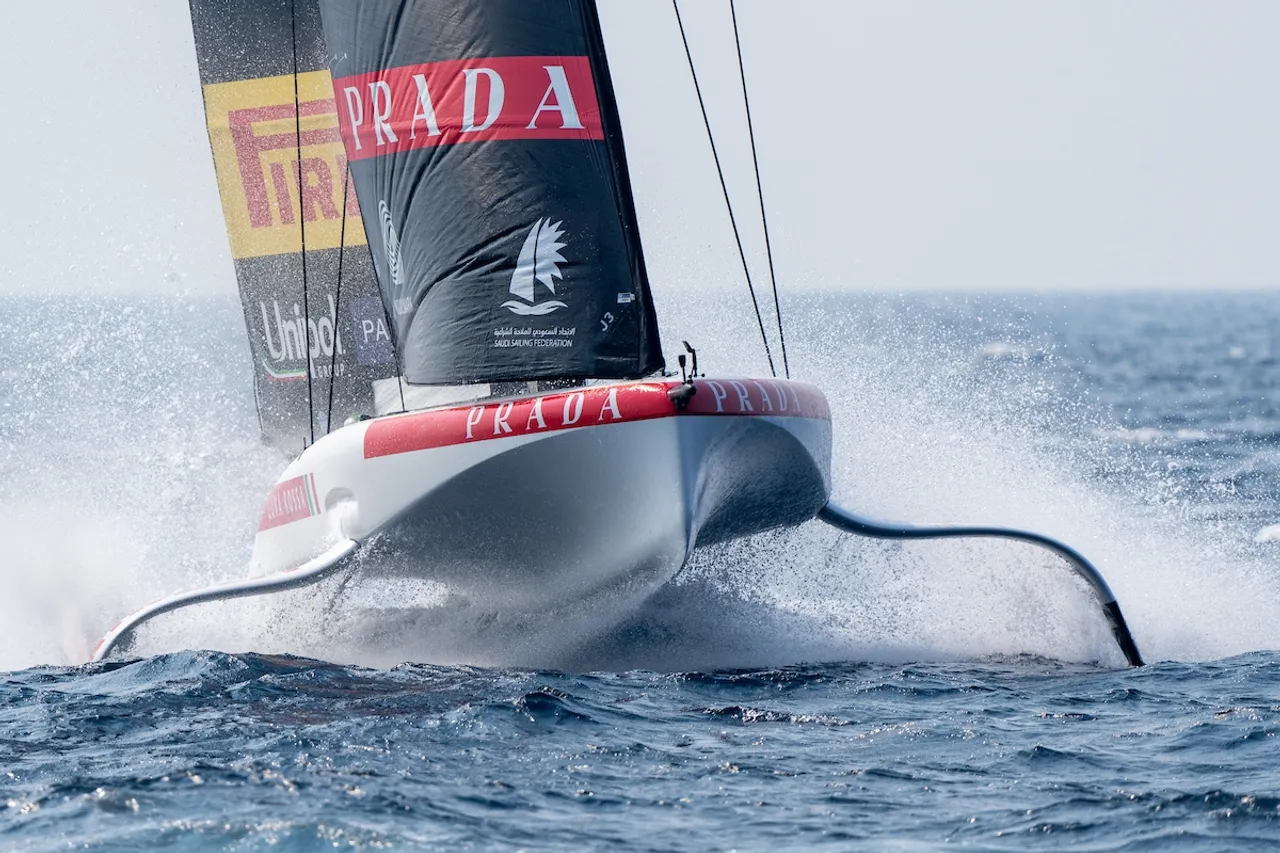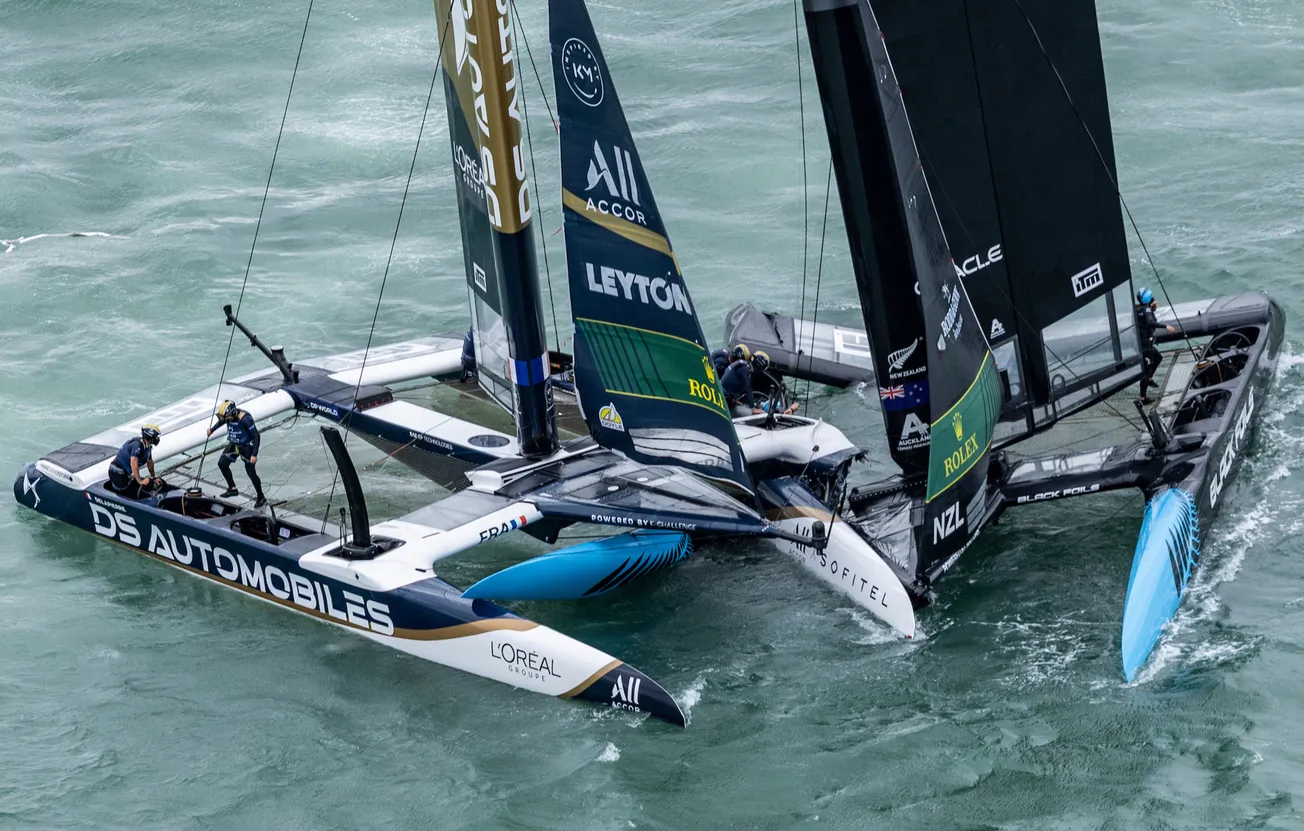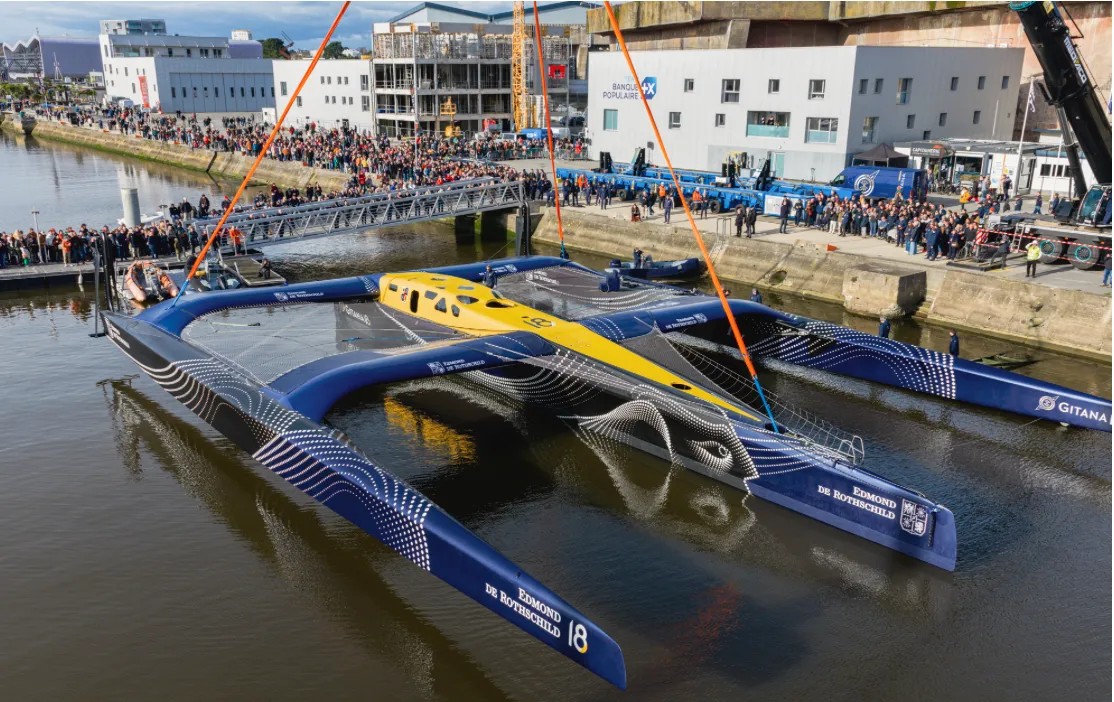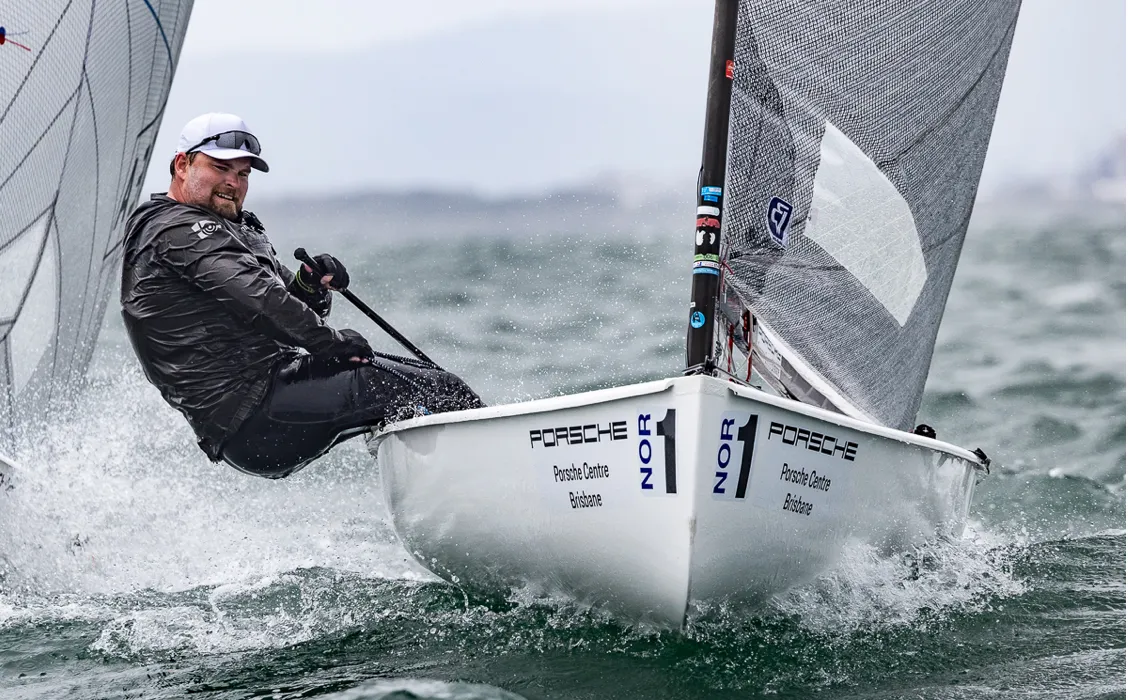

Last week in my Editor’s Notebook post I wrote about the proposed plans to replace the current Medal Race format used to conclude Olympic regattas with what has been nicknamed a ‘30 Minutes of Tears’ multi-race format that has been cooked up by a World Sailing working group.
A few days later I was contacted by British Olympic campaigner Micky Beckett who has taken to social media to highlight the serious risk he believes Olympic sailing is facing from the proposed changes.
The top UK Laser sailor recently finished third in the Dutch event of World Sailing’s Sailing Grand Slam series, where the proposed new format was used as a pilot test ahead of its proposed adoption for the Los Angeles Olympic Games in 2028. The next Olympics may be two years away but the March 2026 deadline to agree the new format is looming.
Here’s what Micky had to say on Instagram and Facebook.
“Olympic sailing is getting reformed and recycled. What an international regatta looks like is about to undergo the biggest change in decades. As someone who has lived and breathed this sport and doesn’t want to see it become a game, the coming changes leave me feeling uneasy.
“Apparently Olympic sailing isn’t interesting enough and fails to captivate a global audience in the way that mainstream sports can. If the sport is to remain in the Olympics, and if people like me don’t want to be out of a job, then seemingly it needs fixing.
“My concern lies with the total lack of consideration for what it is like to be a competitor in this sport or someone who aspires to be just that. The wider sport is being overlooked, where the existing link between Olympic sailing and the grassroots is already far too thin, The current proposals, the type which we just raced with at the Sailing Grand Slam Final, will make Olympic sailing wholly unrecognisable to any grassroots participant; a dislocation from which I don’t think the sport will recover.
“Realistically a large part of the rationale for this change is due to the underwhelming spectacle of sailing at the Paris 2024 Olympics. This wasn’t due to a lack of effort on the part of the athletes, organisers or production team, it’s because there was usually no wind. No matter how well intentioned, change for the wrong reasons won’t fix a problem we don’t have.
“For some time to win in Olympic sailing, you have to showcase the values that the sport is so well known for. You want to be the best, you want to win? You need to be tough, Not Tour de France tough, but tougher than you look. You need to be patient, accurate and ruthless to a point that few could understand.
“You need to be able to win a race without any idea when it will start or what conditions it will take place in. You need to endure while your legs scream for air so you can play the chess game against the rest. You need to be consistent. These are Olympic sailing’s values.
“Contrary to what the IOC might think, plenty of people follow the sport because they know sailing provides a unique showcase for people who excel in the aforementioned values. And with a small amount of practice to understand the game, it’s entertaining too. Sailing regattas are long because the weather is variable, preparation for an event is to learn how to sail in all conditions, not gamble on one race in one condition.
“Regardless of the method by which it is decided, there will always be medallists and a winner. The question that is being asked is how do we choose our winners? Who is the champion of the values that sailing requires?
“If the winner becomes so because they qualified for a winner takes all race and luck shines upon them that day, as will happen if insufficient time is given to scrutinise their ability, then the competitors will be the first to know the raw injustice of it. Spectators will know because simply put, they aren’t stupid. They want to see a competition, not a lottery. And most importantly, the people who really matter in all of this, those we inspire to go out on the water, leave their phone behind and take on an adventure, they won’t buy what we are selling.
“In the pursuit for drama to cater for an audience with such supposedly short attention spans, there is a guarantee of creating random outcomes with the mistaken notion of selling jeopardy.
“The Olympics itself is the pinnacle of raw human endeavour where the very finest athletes in the world excel at something surprisingly relatable. Within that, sailing is unique, it must embrace that and not apologise for it, we should focus on telling the story, not changing it.
“SailGP is a monumental spectacle taking place in some of the best venues in the world. Where that comes at the cost of racing quality, the ebbs and flows of fortune in different conditions are negated by the year that it takes to qualify for the grand final. If the Olympic race course is a much hyped and poorly conceived ‘stadium venue’ with just one broadcast window to differentiate between 10th and 1st in each class, something has gone seriously wrong. Olympic sailing must do its utmost to remain something which the grassroots of the sport will recognise, appreciate and aspire to take part in.
“Sailing is the freedom to explore and drive your boat years before you could drive a car, it’s unique in its ability to provide purpose and skills to anyone at any age, who may find themselves without the direction they need in life. There are no genetic prerequisites that the elite end of other sports require of you, there is a place for everyone.
“The sport will only ask you one question.
“Do you care?”
Fellow British Sailing Team member and Olympic silver medallist John Gimson has also made his feelings on the subject clear as he spoke in support of Beckett’s post on Facebook.
“Micky’s words are spot on. I am deeply concerned about the direction world sailing is heading in, particularly with the current format suggestions. Format is not going to save our sport. Telling the right stories and not having hours of footage of AP flags and delays may help though.
“The athletes are being unfairly punished for the broadcasting shortcomings. Sailing is a sport that thrives on consistency across a range of conditions. A single, short, usually gusty, and unpredictable final race to decide Olympic medals is not our sport. There’s too much luck and jeopardy involved. The results should reflect the series and the best athletes who performed consistently throughout the week.
“Many sports don’t have a clear winner across the line, but with the right broadcasting, we can still enjoy and appreciate them. Think Formula One, the Tour de France, and so on. Would we decide the winner of Wimbledon on just one game? Or the football World Cup on a single penalty shootout? Athletes in the heptathlon complete seven events, and would it be fair to decide the winner solely on the 800 metres? Sailing is no different; we complete a series of races in various conditions. Why should we put everything on a single final race?
“I acknowledge that the Medal Race wasn’t always captivating viewing, but the final fleet races are always entertaining. However, the stories that unfold during these races are often overlooked. SailGP does a great job of displaying the series leader and providing commentary on the key moments in the final fleet race. If we could replicate this approach at the Olympics, I believe it would significantly increase viewership compared to any format changes.
“Imagine a future where we only have one race to decide the Olympic Games results. What’s the point? We’d lose the essence of becoming an Olympic Champion.
"In Paris 2024, the boards all employed extreme formats, which are less extreme than some of the suggestions for Los Angeles. Notably, none of the leaders in the final won gold, including Emma Wilson, who was 31 points ahead. I’m curious to see if these formats improved viewership. We should celebrate our greats; this is the Olympics, not the Hunger Games.”
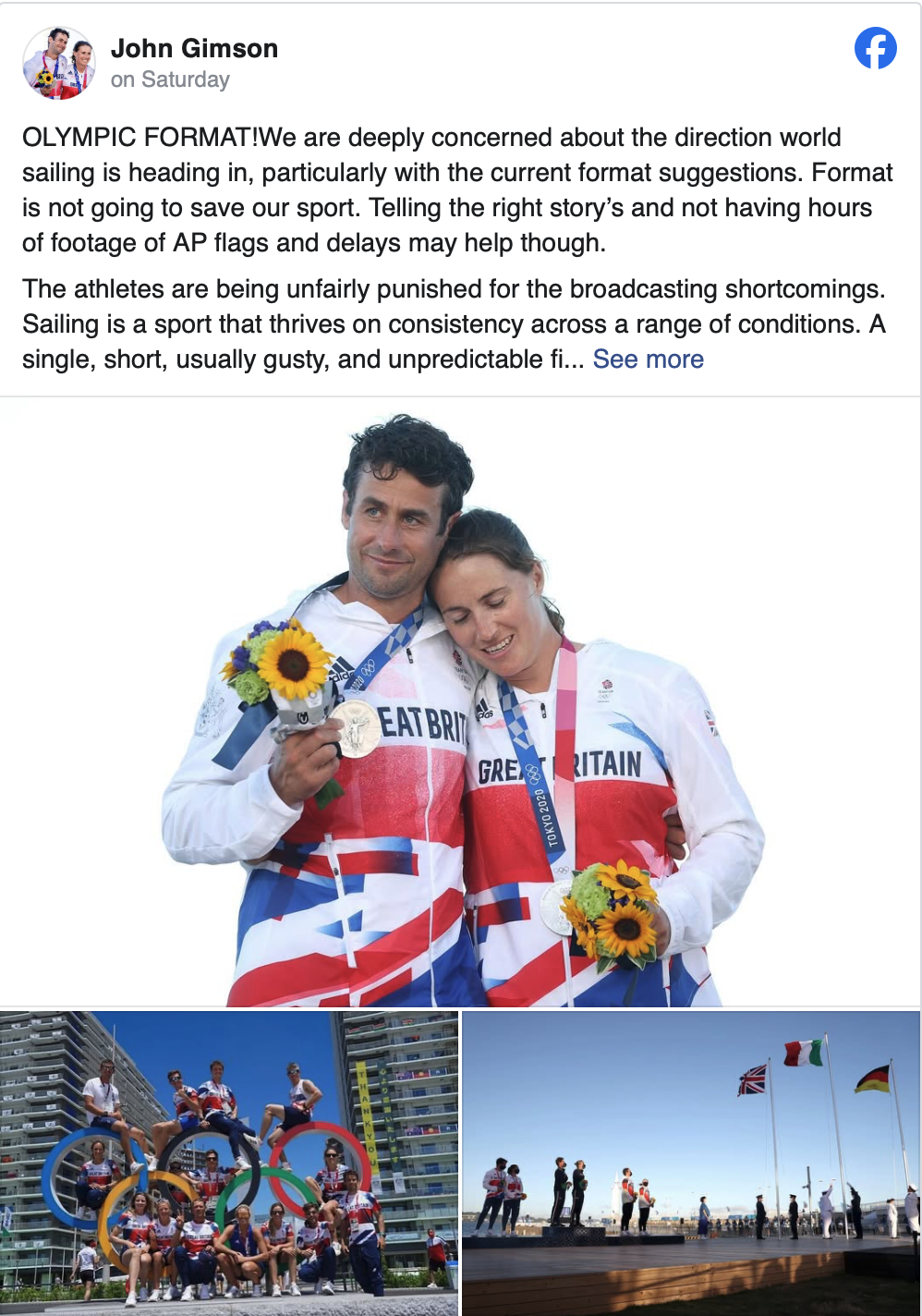
A comment from retired British Olympian Will Howden who finished sixth in the Tornado class at the Beijing Olympics crewing for Leigh McMillan lays the blame firmly at the door of World Sailing.
“One of the problems is that everyone at World Sailing are sheep, none of them are leaders or forward thinkers. Everything is reactionary and in 4 - 8 year cycles this simply doesn’t work.
“I haven’t been part of that world for almost a decade now and don’t miss this side of the uncertainty about Olympic classes and the randomness of World Sailing. Do I have an answer, no. Did I try as part of the Athletes Commission back in the day to try and inform/influence/change the thought process, of course it did but I am sure as many sailors will attest it falls on deaf ears.
“The sailors don’t have enough/any say in the sport which is the first failure of any representative body. Will they listen now, sorry no they won’t. They have never listened in the past and if the sport becomes non-Olympic (like it did for the Paralympics) there is only one set of people to blame!!
“Ironic that the governing body that thinks it’s saving sailing is actually killing it.”
Fellow Tornado campaigner Mitch Booth (AUS/NED) – an Olympic bronze and silver medallist – had this to say in his comment:
“The culture at World Sailing has been drifting further apart from what sailors want and best for the sport towards what World Sailing vision is. This is in conjunction with the class associations who should be representing the interests of sailors/members, but they are more working to the tune of what World Sailing want.
“Back in 2016, the Nacra Class was virtually hijacked by the current management organisation that now controls 3 of the 10 Olympic classes. They have clearly demonstrated their complete disrespect for what sailors want to do with events, format, class rules, etc. Until this structure is changed, Olympic sailing will suffer.”
How all this gets resolved is unclear. While the purists amongst us – me included – would love to see a return to Olympic regattas being scored as a long series with the winner being the one with the best overall score, that option would seem to be a bridge too far.
It’s worth noting though that – as far as I know – none of the major non-Olympic classes of dinghies and sportsboats/small keelboats have adopted the Olympic Medal Race format. The Star, Melges 24, J/70, Dragon, Finn, OK, and others all rely on a low points series with discards to determine their national, European, and world championship results. That has to say something about the unnecessary nature of creating jeopardy in order to bring a regatta to a conclusion.
My personal view is that sailing is a fundamentally difficult sport to cover well for a live TV audience. This is for a few reasons: the weather makes the programming difficult, the field of play is massive and the courses are difficult to make sense of for a novice audience, there are a lot of classes to cover, and the subtleties of sailing technique are hard to discern for the uninitiated.
All that said, I don’t believe that all of those factors mean that people wouldn’t be interested in watching sailing during the Olympics, even if they don’t fully understand the intricacies of it all. As a non-Olympic example I give you my enjoyment of American Football – a sport for which I really have just the most basic understanding of the rules, but one I love to watch for the characters and exciting atmosphere of most games.
For me the Olympics is the one time when I get the chance to watch sports that are outside of the mainstream and the fact that I don’t fully understand the rules really doesn’t matter. As Micky and John both say in their posts, telling good stories is what gets people hooked, and like most Olympic sports sailing has plenty of good stories to tell.
I suggest that rather than bastardising our regatta formats in order to create fake drama to bring our regattas to a false and unnecessary made-for-TV crescendo, what we should be focusing on is communicating better about our athletes and the blood, sweat, and tears that go into their Olympic campaigns – on and off the water.
What do you think? Let me know in the comments below or chime into the conversation on Micky and John’s social media posts. Perhaps better still send an email to World Sailing and let them know what you think.


